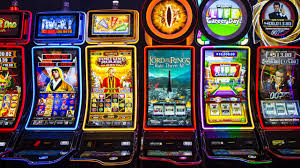Slot machines are a favorite form of entertainment in casinos, drawing players in with their flashing lights, engaging sounds, and the allure of potential big wins. However, many players wonder if there's a way to predict when a slot machine is likely to hit. In this guide, we'll explore the probabilities, strategies, and odds that influence slot machine payouts. While it's impossible to predict the exact outcome of each spin, understanding how slot machines work and the principles behind Random Number Generators (RNGs) can help you make more informed decisions and maximize your chances of winning.
At the core of every slot machine is a Random Number Generator (RNG). This sophisticated algorithm continuously generates random numbers, even when the machine is not being played. When you press the spin button, the RNG selects a random number that determines the position of each reel symbol. This ensures that each spin is entirely independent and random, making it impossible to predict the outcome based on previous spins.
Slot machines operate on the principle of probability. Each symbol on a reel has a specific chance of landing in a particular position, and the combination of these probabilities determines the overall odds of hitting winning combinations. The odds are carefully calibrated to ensure that the casino maintains a profit while still offering players a fair chance of winning.
Return to Player (RTP) is a crucial metric in slot machines that indicates the average percentage of money wagered on a machine that is paid back to players over time. For example, a slot machine with an RTP of 96% will return $96 for every $100 wagered, on average. It's important to note that RTP is calculated over thousands of spins and does not guarantee specific outcomes for individual sessions.
Volatility, also known as variance, refers to the risk level associated with a slot machine. Low volatility slots offer smaller, more frequent payouts, while high volatility slots provide larger but less frequent payouts. Understanding a machine's volatility can help you choose a game that aligns with your risk tolerance and playing style.
Choose High RTP Slots: Look for slot machines with high RTP percentages to increase your chances of winning over the long term. Slots with RTPs of 95% or higher are generally considered favorable for players.
Play Maximum Paylines: To maximize your chances of hitting winning combinations, always play the maximum number of paylines available. This ensures you are covering more potential winning lines.
Set a Budget: Effective bankroll management is crucial for a sustainable gaming experience. Set a budget for your gaming sessions and stick to it, avoiding the temptation to chase losses.
Take Advantage of Bonuses: Utilize casino bonuses, free spins, and promotions to boost your bankroll and extend your playtime. These offers can provide additional opportunities to win without increasing your own expenditure.
Understand the Game Mechanics: Familiarize yourself with the rules, symbols, and bonus features of the slot machines you play. This knowledge can help you make informed decisions and maximize your winnings.
Know When to Stop: Set win and loss limits for each session. Knowing when to walk away can help you preserve your winnings and avoid unnecessary losses.
Hot and Cold Machines: One common myth is that slot machines can be "hot" (more likely to pay out) or "cold" (less likely to pay out). However, because each spin is independent and determined by the RNG, there's no basis for this belief.
Near Misses: Some players believe that near misses (e.g., two jackpot symbols appearing with the third just above or below the payline) indicate an imminent win. In reality, near misses are a normal part of the game's design and have no impact on future outcomes.

